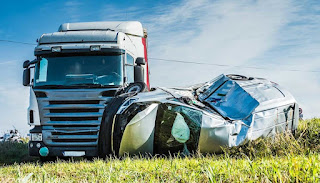The Role of Truck Lawyers in the Trucking Industry
The trucking industry is the backbone of the global economy, transporting goods and facilitating trade across vast distances. However, with the complex web of regulations, safety standards, and potential legal challenges, trucking companies often find themselves in need of legal expertise. This is where truck lawyers step in, playing a crucial role in navigating the legal landscape of the trucking industry. In this article, we'll explore the significance of truck lawyers, their responsibilities, and the challenges they address within the trucking sector truck accident lawyers.
Understanding the Role of Truck Lawyers:
Legal Advocates for Trucking Companies:
Truck lawyers, also known as transportation or trucking attorneys, specialize in the legal intricacies of the trucking industry. They serve as legal advocates for trucking companies, offering guidance, representation, and solutions to address a spectrum of legal issues that may arise in the course of their operations.
Navigating Regulatory Compliance:
The trucking industry is subject to a myriad of regulations at both the federal and state levels. Truck lawyers assist companies in understanding and adhering to these regulations, covering aspects such as licensing, permits, hours-of-service rules, and compliance with safety standards set by agencies like the Federal Motor Carrier Safety Administration (FMCSA).
Legal Challenges in the Trucking Industry:
Accidents and Liability:
Accidents involving commercial trucks can lead to complex legal battles. Truck lawyers specialize in handling cases related to liability, assessing factors such as driver negligence, mechanical failures, and adherence to safety protocols. They work to protect the interests of trucking companies and their drivers.
Cargo Disputes:
Disputes over damaged or lost cargo are common in the trucking industry. Truck lawyers are equipped to handle cargo-related legal issues, ensuring that companies are protected and assisting in negotiations or legal proceedings to resolve disputes with shippers or insurers.
Employment and Labor Law:
Trucking companies deal with various employment and labor law matters, from driver contracts to employee rights. Truck lawyers provide guidance on matters such as employment contracts, worker classification, and compliance with labor laws to mitigate legal risks.
Importance of Truck Lawyers in Accident Investigations:
Thorough Investigation and Documentation:
In the aftermath of a trucking accident, a prompt and thorough investigation is crucial. Truck lawyers work alongside accident reconstruction experts and investigators to collect and document evidence, including witness statements, driver logs, and data from onboard recording devices.
Liability Assessment:
Determining liability in trucking accidents can be intricate. Truck lawyers analyze the evidence gathered during investigations to assess liability factors such as driver error, equipment malfunction, or external factors like road conditions. This assessment is essential for building a strong legal defense or pursuing claims on behalf of their clients.
Representation in Legal Proceedings:
If legal action ensues following a trucking accident, truck lawyers provide representation in court. They present evidence, cross-examine witnesses, and argue on behalf of their clients, aiming to achieve favorable outcomes in terms of liability determination, settlements, or court judgments.
Mitigating Risks and Ensuring Compliance:
Proactive Legal Counsel:
Truck lawyers adopt a proactive approach to legal counsel, assisting companies in establishing comprehensive compliance programs. This includes regular audits of safety protocols, driver training programs, and ongoing legal advice to minimize the risk of legal challenges.
Contractual Matters:
Truck lawyers play a pivotal role in drafting, reviewing, and negotiating contracts within the trucking industry. This encompasses contracts with shippers, suppliers, insurers, and employees. Ensuring that these contracts align with legal standards and protect the interests of the trucking company is a crucial aspect of their work.
Evolving Legal Landscape and Emerging Issues:
Technology Integration:
The integration of technology in the trucking industry brings forth new legal considerations. Truck lawyers stay abreast of developments such as autonomous vehicles, telematics, and electronic logging devices (ELDs), ensuring that their clients are compliant with evolving regulations and adequately protected in the face of technological advancements.
Environmental Regulations:
With an increasing focus on environmental sustainability, trucking companies must navigate evolving environmental regulations. Truck lawyers guide companies in adopting eco-friendly practices, understanding emissions standards, and complying with regulations aimed at reducing the industry's environmental impact.
Legal Education and Training:
Educating Industry Stakeholders:
Truck lawyers contribute to the education and training of industry stakeholders, including trucking company personnel and drivers. By conducting training sessions on compliance, safety regulations, and legal best practices, they empower their clients to navigate the legal landscape more effectively.
Webinars and Seminars:
Many truck lawyers engage in knowledge-sharing initiatives, hosting webinars, seminars, and conferences to disseminate legal insights within the trucking community. These events provide a platform for industry professionals to stay informed about legal developments and best practices.
In a sector as multifaceted as the trucking industry, the role of truck lawyers is indispensable. Their expertise not only addresses legal challenges but also contributes to the overall integrity, safety, and compliance of trucking operations. As the industry continues to evolve, the partnership between trucking companies and their legal advocates remains pivotal for navigating the intricate legal roads ahead.




Comments
Post a Comment